The Eng Family Project
|
My Father's Story My father was born in 1944, in Toisan, a village in the Canton province of China. My father's family was considered financially well-off in China during those days; my great-grandmother, who was already in the United States, often sent money to his son-in-law and daughter in China. So my grandparents were able to open a general store in the village, and were able to raise two daughters and five sons with little or no financial hardship. However, the stability they enjoyed was about to change. Mao Tse-Tung, leader of the new communist party, had just taken over the country. Many educated professionals and businessmen (like my grandfather) were persecuted by peasant mobs who, with the blessing of Chairman Mao, ensured that the Eng family and many other families suffered for what they believed were "injustices" against the peasant class. |
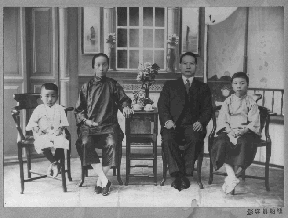 My great-grandparents, with my grandmother (my father's mother) and granduncle, in China, early 1900s. |
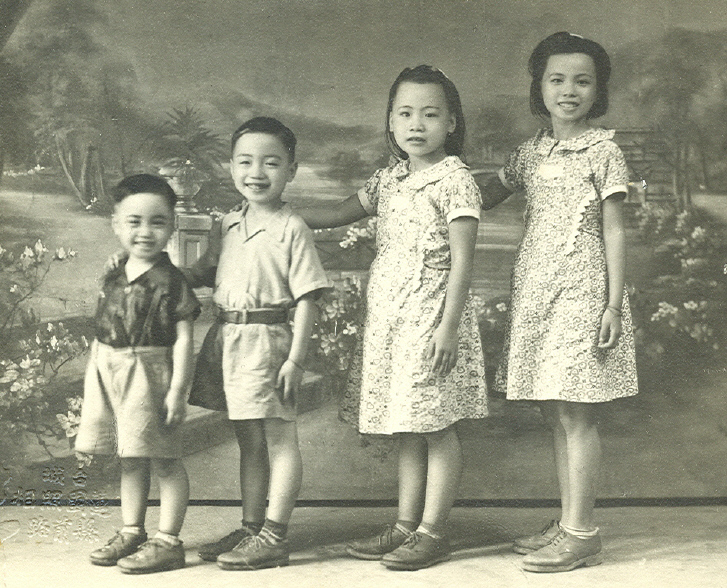 My father Cheukman, my uncle Thomas, and my two aunts, in China, 1940s. |
Mothers and fathers were dragged out of houses, forced to kneel on broken glass, while their children, egged on by the mobs, spit on them and called them names. My grandfather was incarcerated. The reason? For having too many possessions, and too many sons. With my grandfather in jail and all of their possessions taken away, my grandmother faced a terrifying fate with her seven children. They were on the brink of starvation. My great-grandmother, who was in New York during the whole ordeal, sent letters and bribes to party officials, begging them to release my grandfather. |
| Finally, my grandmother had no choice but to make the ultimate sacrifice: sell one of her children. Many families who were in similar situations had done this, and for several reasons. First, the money would be used for bailing the breadwinner out of jail. Second, the money was used to temporarily alleviate the dire circumstances the family was in, so that the other children might live a little longer. Finally, there was also the thinking that, if the family was to ultimately die in the hands of the communists, at least one child would survive and hopefully live out a better life. | 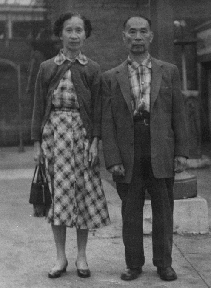 My great-grandfather and great-grandmother, in New York City, 1950s. |
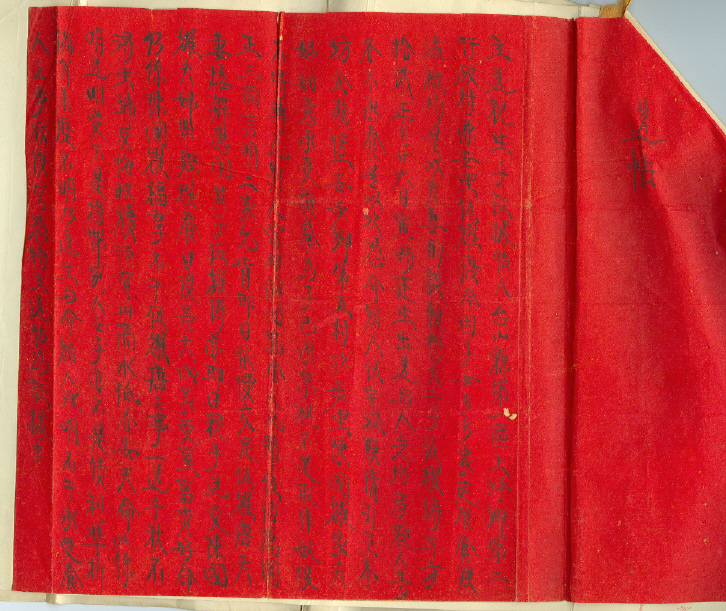 In this document, my grandfather legally transferred guardianship of my father to Mr. and Mrs. Chan Kwok Yiu. Click here to see a translation of this document. |
So my father, at the age of ten, was sold to a childless Chinese American couple residing in New York City. Soon after, my grandfather was released from jail. Later, the Eng family escaped the brutality of Communist China by emigrating to Canada. They were able to do this by way of my aunt, the second daughter of the family, who became a mail-order bride to a Chinese Canadian man living in Vancouver, British Columbia. Once she got married, she was able to apply for residency for the rest of her family. Years later, the Eng family was able to locate my father, who by then was already a young man. My father had to change his name (that is why my last name is Chan and not Eng), and promised to be loyal to his adoptive parents. Even after my father was reunited with his biological family, he stayed with his adoptive parents and still carries the Chan family name for them. |
|
There is just so much more to this story. What I've described above is just the tip of the iceberg; it's also the version that I grew up knowing. However, in 1996, I went to Vancouver and have found that the reason and circumstances behind my father's adoption are unclear. There was also some discussion regarding a "sixth son" in the family. It seems that there are many different strands to the story, though the tragedies and triumphs my father's family experienced were the same. Though I may never find out what exactly happened, I hope to complete and publish a book by compiling anecdotals from interviews with my great-grandmother, grandparents, aunts and uncles. By assigning these stories the honor of personal truths, I hope that the rich history of my family will be passed on to others, so that they too can understand and appreciate the bonds that hold a family together. |
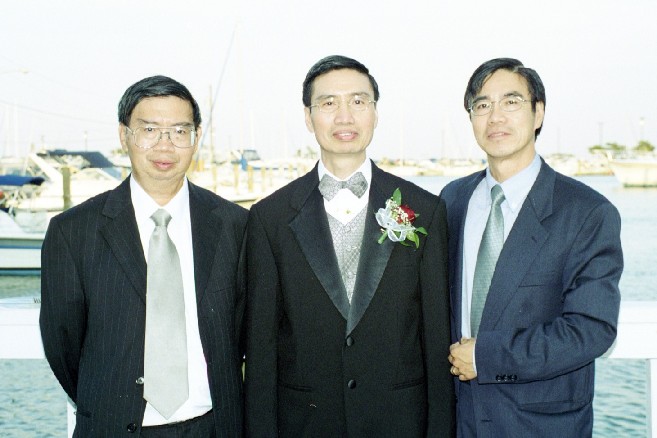 My uncles Thomas and Stephen, with my dad in the middle. I'm in the process of locating a family picture of all seven brothers and sisters. |
 Anna's Inkwell
Anna's Inkwell